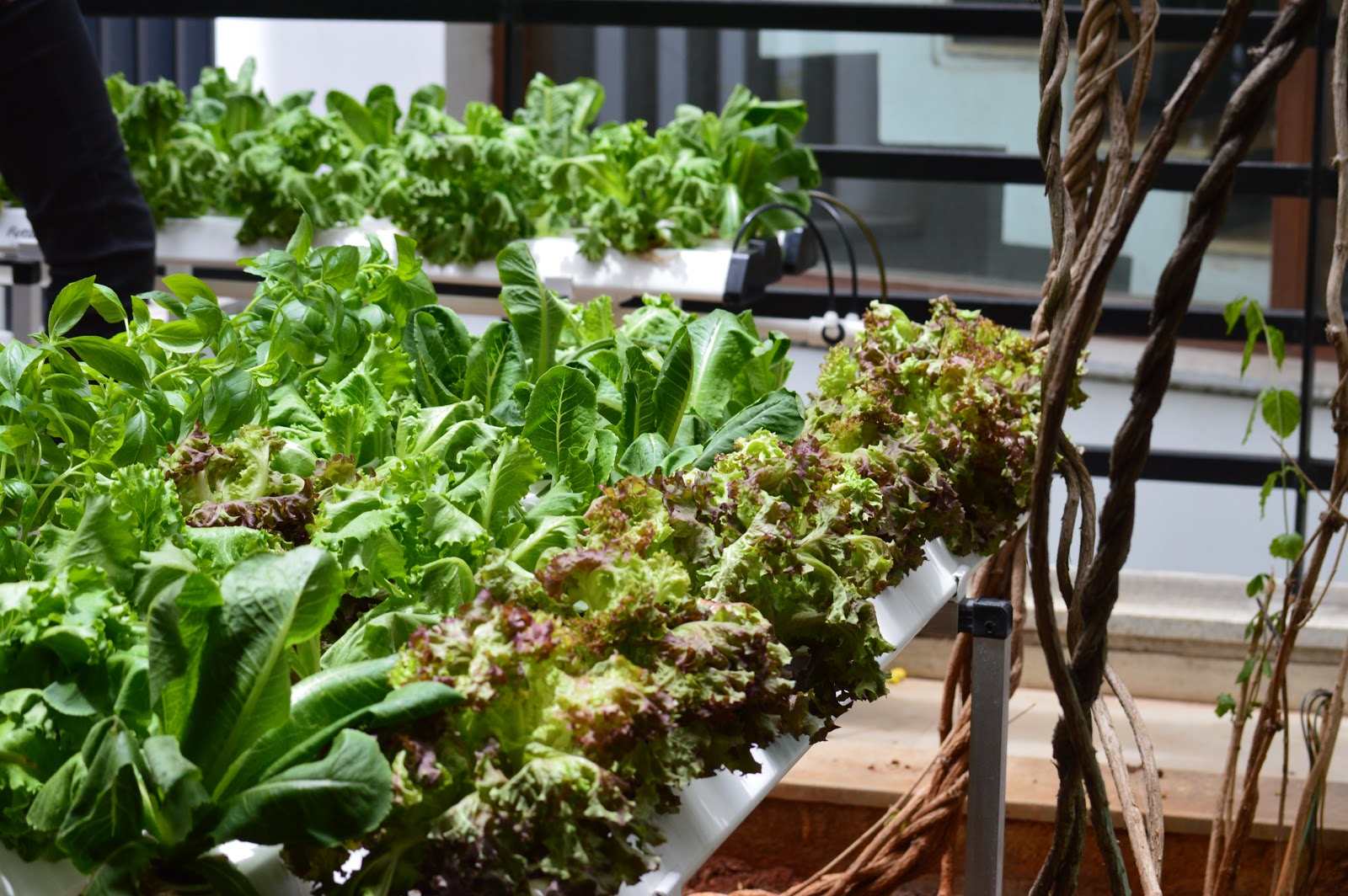
Common problems encountered with Hydroponic Gardening
Common problems encountered with Hydroponic Gardening
If you’re doing hydroponic farming at home, here are some common problems you probably face with hydroponics in areas like Hyderabad, Chennai, Delhi and the rest of India. We will also cover some quick fix solutions for these problems! If you’re not a hydroponics urban gardener, what are you waiting for? Head on over to the FutureFarms Urban Store and pick up your very own hydroponic kit in India!
Water Management
You will find that the water level in your system goes down every couple of days. This is because of plant uptake as well as evaporation of water. When the water level in your system goes below a certain point, your plants will start to suffer from dehydration. The easiest way to overcome this is to top up the water in your reservoir every 2-3 days!
It’s not enough to ensure your plants get sufficient water, you also need to give your plants nutrients in the water. Additionally, you need to maintain your keep the water slightly acidic to maximise plant intake of nutrients. To keep your plants well hydrated and well fed, check the EC and pH of your water every 2-3 days and add nutrients accordingly.
Pest Management
While hydroponics has bypassed about 90% of the pest issues faced by soil grown crops, there’s still the 10% of fungal infections and air borne pests that may plague your crops. The most common fungal diseases you may face are root rot and sclerotinia while some familiar air borne pests are mealybugs, aphids, leaf miners and white flies.
There are three layers of protection you can provide your plant against these assailants. A physical barrier such as an insect net will keep airborne pests at bay but will burn a hole in your pocket. Instead, keep your system protected from rainfall and spray your foliage with organic plant extracts like chili, garlic or neem oil to extend protection from fungus and pests. You could also spray microbes such as Trichoderma and Pseudomonas to boost your plants immunity against diseases.
System Management
After a few weeks of using your hydroponic system, you may find algae growing inside your NFT channels or in your reservoir. Water abundant areas exposed to sunlight will foster algae growth. You may also find that there are salt deposits at the bottom of your gully or reservoir tank.
Flush your system with Flora Kleen to dissolve the extra salt deposits, kill algae and fungal diseases. The great thing about Flora Kleen is that it can be used while your plants are growing in your system! Also, ensure you clean your system with a brush after every cycle to for optimum results!
Plant Management
After transplanting your seedlings into your hydroponic system if they appear to look droopy and colorless and proceed to die over the next couple of days, this is because of transplant shock. To avoid this, ensure that the roots of your seedling are not exposed to air for long durations while transplanting. Once you remove the seedlings from the seeding mix, keep the roots in water till they are moved to the hydroponic system.
In certain climates, if your hydroponic system doesn’t have access to electricity you may find that your plants are dead by the end of the day. It is important to keep your system running all the time so as to keep the roots oxygenated. If your area is prone to frequent power cuts, use alternative sources of electricity to power your system! Solar power, diesel generators or inverters are just some options.
With these basics in mind anyone can start hydroponic farming at home! We at FutureFarms provide you with holistic hydroponic solutions to help with hydroponic farming at home! Get in touch to pick up your very own hydroponic kit in India over here.

How do I fix aphids infection
Hi Shivprasad,
You can get rid of aphid infections by the following instructions:
1.Physical Barrier – Cover plants with the insect net
2.Organic- Apply Neen Oil or Plant Extracts
3.Bio Insecticide – Beauveria, Verticillium
4.General Gardening Tips
4.1. Keep Ants Away from the plant area
4.2. Spray Water with force
4.3. ferment rice in water for 10 days and spray the extracted water on the affected area.